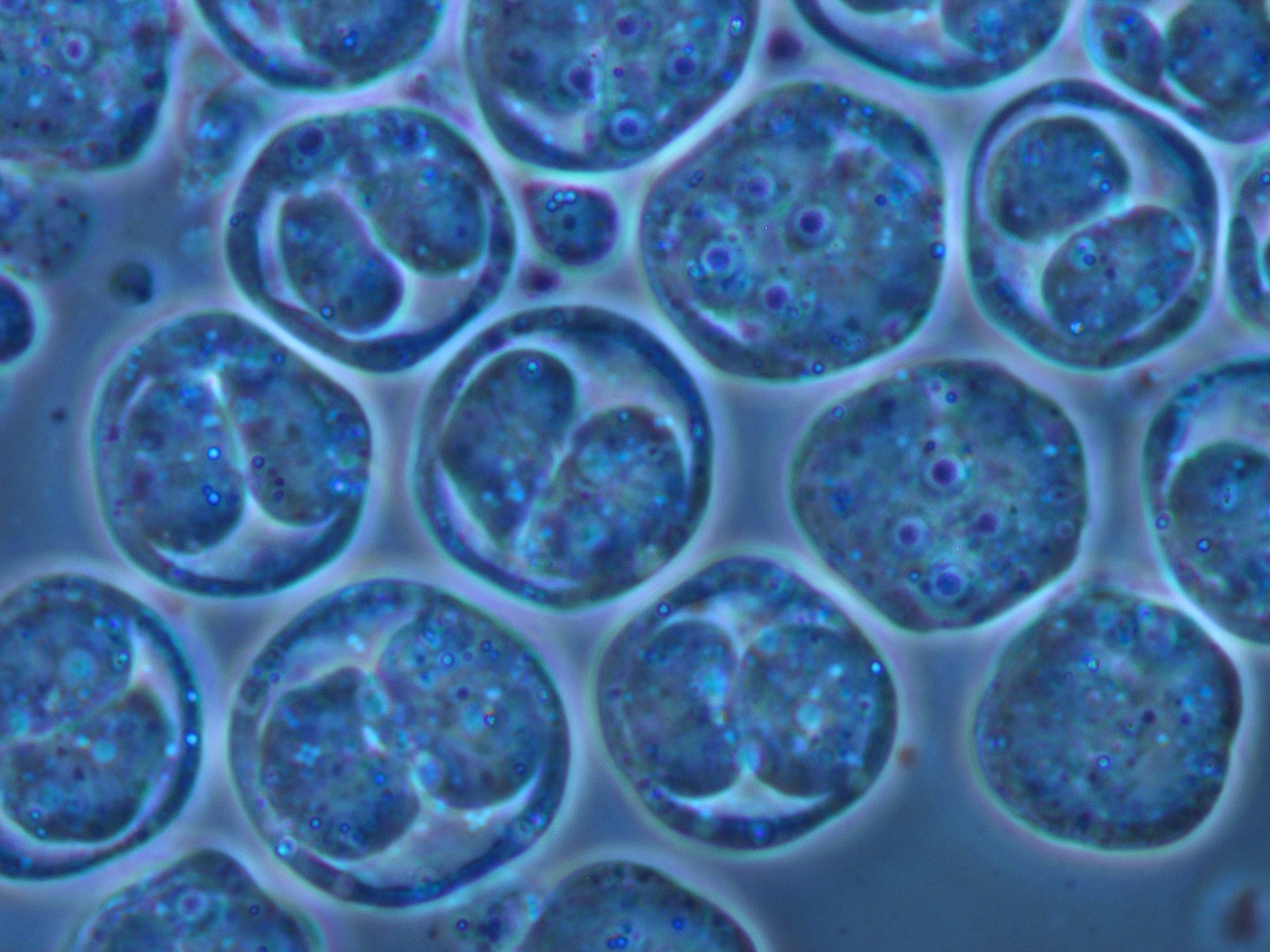Wednesday, 24 February 2021
New research could pave the way for the development of drugs and vaccines to treat a disease that is rapidly emerging in wild and farmed fish in the UK, Europe and North America, as a result of climate change.
The study, which was carried out by experts from the University of Aberdeen in collaboration with the University of Nottingham and the Natural History Museum and is published in Scientific Reports, is the most extensive analysis carried out on the parasite which causes Proliferative Kidney Disease (PKD) in fish such as trout.
PKD is caused by a member of an unusual group of parasites called myxozoans that are related to jellyfish, sea anemones, and corals. These very simple parasites, in contrast to most other living things, have evolved from a much more complex ancestor.
Myxozoan parasites live inside invertebrates, such as certain kinds of worms or animals called bryozoans that live in colonies. Also, as part of their life cycle, they will also exist in some kinds of vertebrates too.
Only a minority of these parasites go on to cause serious disease in animals, such as fish, including the parasite that causes PKD, called Tetracapsuloides bryosalmonae. Rising freshwater temperatures are leading to an increase in disease instances caused by these parasites.
Researchers carrying out the study, have undertaken mass sequencing of the parasite’s genes using both infected hosts in its lifecycle. In doing so, they have made major in-roads towards understanding how the parasite interacts with and exploits each host. This has provided important insights into the kind of parasite molecules that could be targeted therapeutically.
Dr Holland said: “Myxozoan diseases, especially PKD, are linked to increasing freshwater temperatures with climate change being a major factor in increased disease occurrence and severity. This has, indeed, been the case within the UK, Europe and North America, impacting fisheries and aquaculture.
“Currently, there are no licensed drugs or vaccines available to control PKD and because this parasite is so fragile, there are no available means to isolate and maintain it for laboratory studies, independently of either host in its lifecycle.
“We can isolate and sequence the parasite from its invertebrate host, but this is more difficult when the parasite is infecting the fish host. Parasite molecules that could be important therapeutic targets may be missed if we don’t obtain parasite gene sequences from both hosts.
Dr. Hanna Hartikainen from the School of Life Sciences at the University of Nottingham emphasised the importance of studying parasites across the entire life-cycles
Incorporating transcriptomic data from both invertebrate and vertebrate host may provide novel avenues to discover molecules useful for vaccine development. Our study discovered molecules that are almost exclusive to one of the two hosts in the parasite’s lifecycle. This provides a strong indicator of the importance of such molecules in safeguarding parasite survival and exploiting the host.”
Prof Okamura said: Our study also paves the way towards understanding how genes may support development of highly simplified parasites. We identified homeobox domain-containing proteins that play a role in development in other animals, including in jellyfish relatives, and thus may promote myxozoan development. Some of these genes may have been lost in the more advanced myxozoans that have been studied to date."
 Parasite spores
Parasite spores
The team also found that the molecules required for the parasite to thrive, such as fat digesting proteins, were highly abundant in fish, which they believe may explain what triggers disease symptoms in fish hosts.
Dr Holland continued: “This work provides an important foundation for subsequent studies to further understand why a fish’s immune system is unable to ward off the parasite, as well as in understanding its metabolism and development.
“This has the potential to lead to the development of drugs and vaccines to help control PKD in the future. Indeed, we have already used the data to inform on studies into vaccine development and have uncovered a molecule the parasite uses to attack the fish immune system, in a way that is completely novel to animal parasites”.
The full study can be found here.
Story credits
This study was funded by the Biotechnology and Biological Sciences Research Council (BBSRC), a Swiss National Science Foundation Sinergia, EU 2020 ParaFishControl research programme, and the Natural History Museum, London.
Notes to editors:
About the University of Nottingham
Ranked 97 in the world and 17th in the UK by the QS World University Rankings, the University of Nottingham is a founding member of Russell Group of research-intensive universities. Studying at the University of Nottingham is a life-changing experience, and we pride ourselves on unlocking the potential of our students. We have a pioneering spirit, expressed in the vision of our founder Sir Jesse Boot, which has seen us lead the way in establishing campuses in China and Malaysia - part of a globally connected network of education, research and industrial engagement.
Nottingham was crowned Sports University of the Year by The Times and Sunday Times Good University Guide 2024 – the third time it has been given the honour since 2018 – and by the Daily Mail University Guide 2024.
The university is among the best universities in the UK for the strength of our research, positioned seventh for research power in the UK according to REF 2021. The birthplace of discoveries such as MRI and ibuprofen, our innovations transform lives and tackle global problems such as sustainable food supplies, ending modern slavery, developing greener transport, and reducing reliance on fossil fuels.
The university is a major employer and industry partner - locally and globally - and our graduates are the third most targeted by the UK's top employers, according to The Graduate Market in 2024 report by High Fliers Research.
We lead the Universities for Nottingham initiative, in partnership with Nottingham Trent University, a pioneering collaboration between the city’s two world-class institutions to improve levels of prosperity, opportunity, sustainability, health and wellbeing for residents in the city and region we are proud to call home.
More news…